Rick "Biggie Smalls" Wolfe Photo Tribute
peace, mc



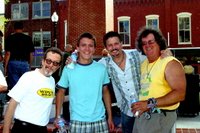
Inaugural bash puts blues fans in happy place
After some hard knocks, the first Hard Knox Blues Bash will take place Saturday from
Until now, the free blues festival has been nothing more than a string of melodies playing in Michael Gill's head since 2000.
Call him a blues crusader: Gill, the organizer of the bash, which will benefit children with disabilities through The Heartsong Center for Accessible Music & Art, said he wants to take the blue out of the blues.
"Blues is often thought of as sad music," he said, "and that just isn't the whole story of the blues."
Telling that story will be Nashvillians Stacy Mitchhart & Blues U Can Use and Texans Diunna Greenleaf & Blue Mercy.
The sounds of Mitchhart's guitar and voice (along with his seven-piece band) hold down
Mitchhart will bring a taste of his sultriness to
Mitchhart, who dresses to the nines, said: "I don't want to be considered a blues artist, but as an artist that is blues-based. I do my own stuff - jazz, Latin, rock - all influenced by R&B and gospel."
Similar to Mitchhart, Diunna Greenleaf & Blue Mercy don't want to be isolated into the blues box, but rather, "we let the people decide who or what we sound like," said Greenleaf.
Born to gospel-singing parents, Greenleaf said the family legacy must have "seeped down in me."
The military veteran and one-time college counselor gave up her higher-education post nearly two years ago to pursue singing full time.
Growing up, Greenleaf said, she was surrounded by the likes of music legends Johnnie Taylor and Sam Cooke "because my dad was a vocal coach, and he trained some of the best in the gospel music industry."
Not formally trained, Greenleaf, dubbed the "siren of the blues," learned from the best - her family.
"I simply don't want the legacy to die," she said.
Greenleaf's mixture of jazz, gospel and svelte soul will take center stage during the bash.
Also taking to the stage will be
Along with food vendors and educational tents, the festival will include a display of all things blues in
| Copyright 2006, Knoxville News Sentinel Co. |
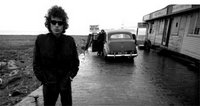


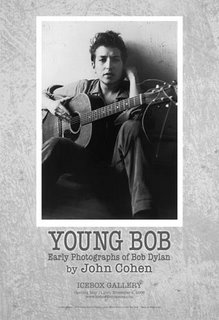
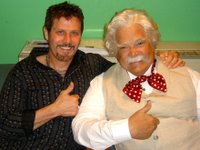
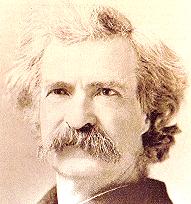

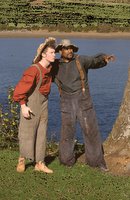



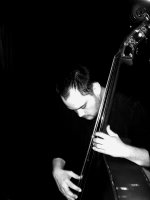

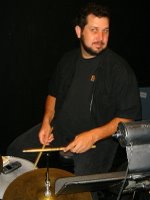


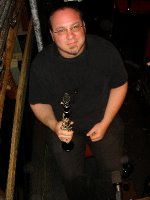

Step back in time with Roger Miller's adaptation of Mark Twain's Huckleberry Finn. Come ride down (the big muddy) river with all the great and crazy characters and sing along to the great musical score. Watch this award winning play transform in front of your very eyes.
a brief review
The Overture sets the scene: the sound of a harmonica quickly joined with a guitar transports us to pre-Civil War Missourah. The rhythms convey the turbulance of the water ahead, and it comes to a conclusion on an uplifting note — forshadowing the nature of our story. [edit] Act One "Sometimes it seemed like the whole blame town of St. Petersburg was telling me who I should be." Huck was right. Between the "Widder" Douglas and Miss Watson, Judge Thatcher, and even his best friend Tom Sawyer, everyone has their opinion about how Huck should comport himself. Do You Wanna Go to Heaven? they inquire. "You better learn your readin' and you better read your Bible or you'll never get to Heaven 'cause you won't know how." Exasperated with the constraints on his daily life, Huck escapes his bedtime and steals to the hideout of his best friend, Tom. In the cave, The Boys sing of all the escapades they'll perpetrate on their way to "the bad place." Huck returns home in the darkness and tells us that he is Waiting for the Light to Shine. He finds his Pap waiting for him, who drags him off to his cabin in the woods. In his drunkenness, Pap swings from tomfoolery to extreme violence as he rails against a Guv'ment that would take his son from him. He attempts to take Huck's life, and passes out in an inebriated mess. Huck, realizing his chance to escape, kills a pig and scatters the blood and gore around the cabin in an effort to make it appear as if he's been murdered. Huck is being quickly forced to grow up, while Tom sings Hand For the Hog — a typical Roger Miller tune — in every attempt to remain a kid. Alone on Jackson's Island, Huck asserts his self-assurance: "I, Huckleberry, Me, do hereby declare myself to be nothin' ever other than exactly what I am." But, perhaps Huck isn't alone. Miss Watson's slave, Jim, is there as well. He has run away to avoid being "sold down the River" to New Orleans. Growing up faster by the second, Huck offers to help Jim reach freedom in the North. A posse is after Jim: with only moments to spare, they find a raft and get it afloat in the Muddy Water of the Mighty Mississip. Jim and Huck travel only at night and don't get far from Jackson's Island before they are reminded of the seriousness of their actions: a boat carrying runaway slaves back to their masters passes them in the night. The fugitives don't move a muscle as they hear the slaves sing of The Crossing, of moving away from — not toward — freedom. The days are long as they forge their way down the river. They narrowly escape capture and a collision with a steamboat, and, in a fog, sail past the mouth of the Ohio — their path to freedom. Oblivious, they sing of the beauty of the River In the Rain — one of the most memorable moments of the show — under a canopy of stars. As they finish their paean to the beauty of the River, they are set upon by the King and the Duke — two con artists who commandeer the small raft as they escape the latest mob on their tail. For many of the same reasons Huck is drawn to Tom, he is intrigued by the delinquents in his midst. The "royals" sing of what happens When the Sun Goes Down in the South, while Jim pines away for his Muddy Water as the curtain falls. [edit] Act Two Huck, the Duke, and the King have embarked upon their first sham. They have washed ashore in Bricktown, Arkansas, and attempt to fleece the rubes they find. The Duke regales them of the evening's entertainment: The Royal Nonesuch, a human oddity. By the end of the evening, Huck can appreciate a new way of life — the three are now several hundred dollars richer. When he returns to the raft, he plays a horrible trick on Jim by assuming the guise of a slave hunter. Unamused, Jim rebukes Huck for the first time. After some thought, Huck realizes that Jim, though a slave, is still a human being and deserving of an apology. They realize that for all of their friendship, they are still Worlds Apart. The King and Duke never allow Huck to fully re-enter his humanistic world, and they reappear to dragoon Huck into their next escapade. While Jim is, again, left alone with the raft, the three encounter a Young Fool on a dock, singing of his love of Arkansas. Through no fault of his own, he tells the con men everything they need to know about a fortune to be inherited in the Wilkes family, and as Arkansas segues into How Blest We Are, the criminals enter the funeral and go about securing their riches. Huck — through it all a pure soul — sees that the beautiful and innocent Mary Jane Wilkes is being robbed of her rightful inheritance by these "rapscallions", and steals her money from the King and the Duke. He quickly stuffs the gold into her father's coffin and hides behind it to avoid notice. She tells her dead father, "If you think it's lonesome where you are tonight, You Oughta Be Here with Me." When Mary Jane realizes what Huck has done, she asks that her remain with her and become her friend. For the first time in his life, he is moved by the actions of another, yet he realizes that he has made a promise to Jim: one that transcends mere friendship. Center stage, caught halfway between Mary Jane and Jim, the three come to understand that Leavin's Not the Only Way to Go. Huck returns again to the raft and finds the Duke tarred and feathered: he has sold Jim back into slavery for a mere forty dollars. Feeling guilty about what he has done, Huck pens a letter to Miss Watson, telling her where she can find the runaway Jim. After a momentary reprieve, Huck ends up feeling worse than ever. He tears up the letter and delivers one of the classic lines of American Literature: "All right, then, I'll go to hell!" He resolves to free Jim, again, expressing himself in an uptempo reprise of Waitin' for the Light to Shine. After a series of plot turns, Tom shows up and decides to help Huck free Jim from his captors. They find him imprisoned in a tiny cell, and work quickly to free him. Huck and Tom get him out of the cell, and Jim declares that he is Free at Last, though conveying the knowledge that he understands that this may never truly be the case. At the end of the play, Jim has decided to continue his trek to the North that he may buy his family out of slavery and Huck decides to move out West to escape any attempts to "civilize" him, they sit for a moment at the banks of the River. They recall their adventures together, and reflect, again, on the River in the Rain. Jim leaves Huck alone for the last time, and Huck decides, "It was like the fortune Jim predicted long ago: considerable trouble and considerable joy."

MPC asked to narrow zoning codes on single-family homes
His example was only one of many at a workshop Tuesday night to consider amending local zoning codes to more narrowly define "a family."
FULL STORY (Click tittle above)